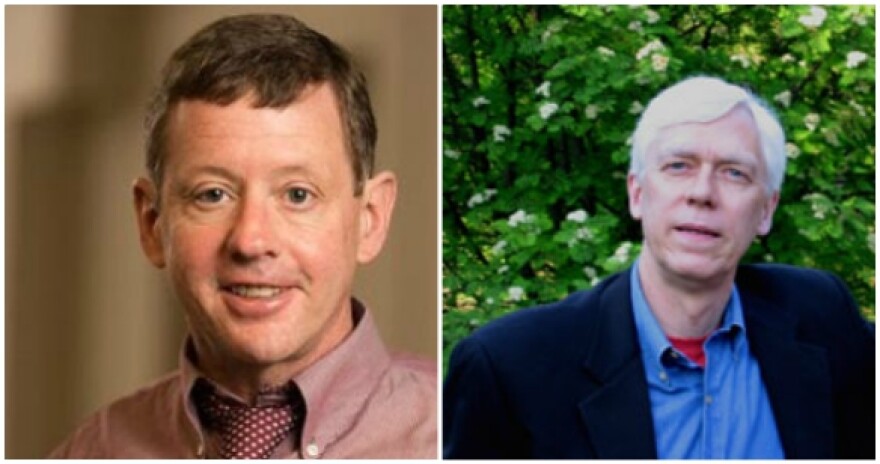You might think "liking” and “wanting” are virtually the same idea. But University of Michigan researchers Terry Robinson and Kent Berridge say knowing the difference between the two has led to new ways of treating addiction.
Robinson and Berridge have been awarded the 2019 Grawemeyer Award in Psychology. I spoke with both researchers about their work, and you can listen to our conversation in the player above.
Terry Robinson on establishing the difference between liking and wanting:
"Back in the 1970s, 1980s, these were not really considered dissociable concepts. That is, the extent to which we're motivated to get rewards was thought to be directly related to the extent to which you derive pleasure from them. And so the unique idea is that actually isn't the case because there's two different brain systems that mediate these different processes. That is motivational processes versus hedonic processes."
Kent Berridge on what they thought they'd find with their research:
"We were expecting to find something entirely different. We were expecting to find that liking and wanting were essentially the same in the brain. There was a great idea at the time that the brain dopamine system was the pleasure neurotransmitter and we thought that would mediate the liking for all rewards and that wanting would follow the liking absolutely, they'd go together.
"To our disappointment, the results in our hands turned out entirely different. We were asking about pleasure a little differently than other experiments had. Other experiments had gotten to the notion that dopamine was pleasure because dopamine activated to all rewards. And because if you manipulate dopamine or suppress dopamine, its individuals tend to stop pursuing, seeking, working for rewards and consuming rewards. They stop all of those things as though the pleasure had drained away from the rewards."
The 2019 University of Louisville Grawemeyer winners receive $100,000 to continue their work. Robinson and Berridge will receive their award during a ceremony next April.


